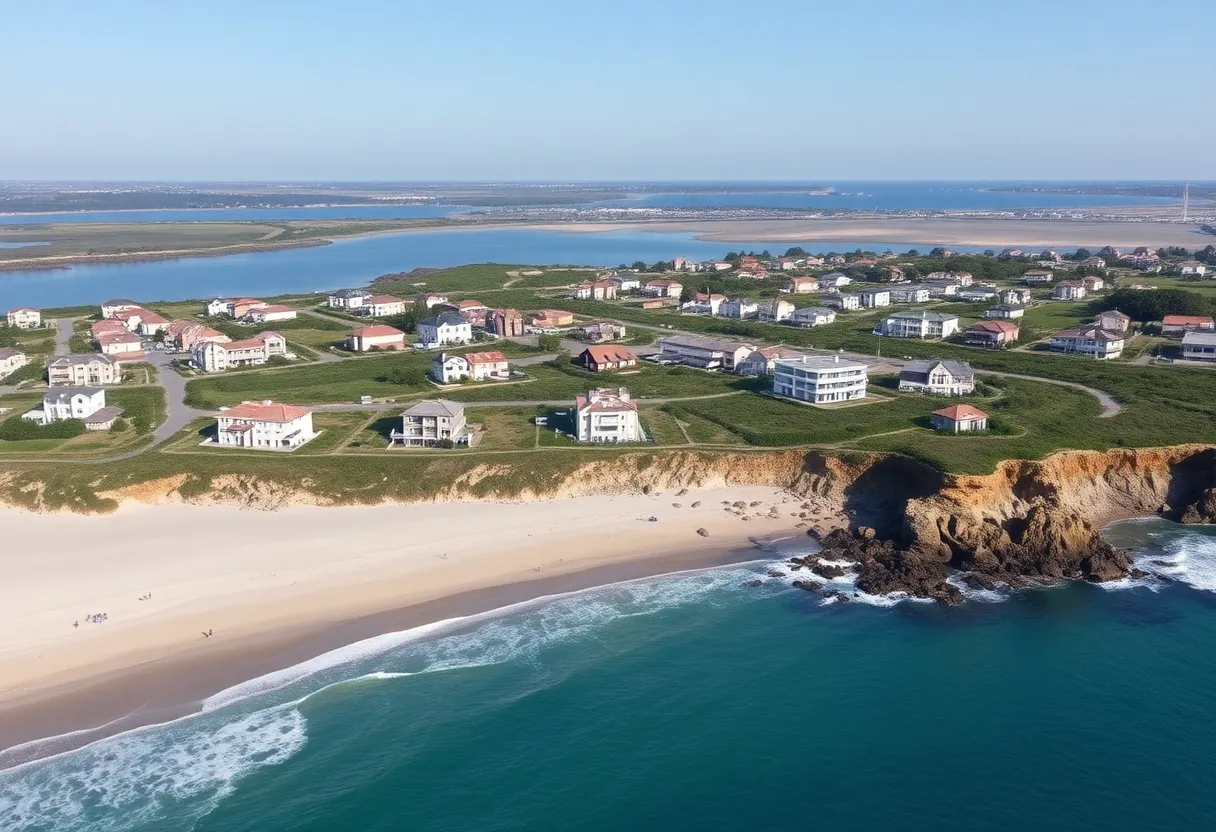News Summary
The South Carolina Senate agriculture committee has voted in favor of Bill S. 526, aimed at protecting wealthy beachfront property owners from state enforcement. Proponents believe the bill safeguards property rights, while critics warn it could undermine coastal law enforcement, possibly leading to illegal construction and financial burden on taxpayers. The debate highlights the tension between private landowners and public beach access amid rising sea levels and climate change.
Contentious Coastal Bill Advances in South Carolina Senate
In an unprecedented move, a South Carolina Senate agriculture committee has voted 13-2-1 in favor of a controversial bill aimed at safeguarding wealthy beachfront property owners from potential state enforcement actions. The bill, known as S. 526, emerged under the sponsorship of Senator Stephen Goldfinch, a Republican from Georgetown, and garnered near-unanimous support from fellow lawmakers, all without a single public testimony.
A Shield for Beachfront Owners?
Proponents of S. 526 argue that the legislation provides essential protections for private property owners along the coast. If enacted, it would mandate the South Carolina Department of Environmental Services to cover the legal expenses of individuals who successfully appeal against state enforcement actions related to coastal law violations. Furthermore, the bill proposes to halt any further state enforcement actions during the appeal process, enabling construction activities in areas deemed jurisdictional along the beach.
Critics Raise Concerns
However, the proposal has ignited fierce criticism from various stakeholders, primarily environmental advocates who fear that weakening coastal law enforcement could result in sporadic illegal construction of seawalls and other structures, adversely impacting public beaches. Critics are also wary of the potential financial ramifications, warning that taxpayers could be on the hook for millions if such appeals proliferate. The ever-present threat of rising sea levels and beach erosion amplifies the urgency of these concerns, particularly for an economy reliant on tourism.
Goldfinch’s Motivations Questioned
Senator Goldfinch, who has represented oceanfront landowners in his private legal practice, has long argued that aggressive enforcement of coastal regulations represents an infringement on property rights. He maintains that discussions surrounding these issues have been sufficiently explored in previous years, thus justifying the lack of public hearings on the current bill.
A Veto in the Air?
Last year, a similar legislative initiative faced a veto from Governor Henry McMaster, who expressed concerns that such measures might undermine the state’s environmental enforcement capabilities while imposing financial strains on taxpayers. At the Senate meeting where S. 526 was debated, Goldfinch conceded that he had not consulted with the governor regarding this new iteration of the bill.
Calls for Further Discussion
Among the committee members, Senator Russell Ott abstained from voting, advocating for more comprehensive discussions and public evaluations regarding the bill’s broader implications. His reservations echo a growing sentiment that the complexities surrounding coastal law enforcement demand a more thorough deliberation, not only for the protection of private property rights but also for the preservation of South Carolina’s public beaches.
Balancing Interests in the Face of Change
The crux of the ongoing debate lies in the balance between private landowners seeking to secure their investments and state regulators striving to uphold the public’s right to access and enjoy the coastline. As South Carolina grapples with rising sea levels and accelerated beach erosion, the tension between these two factions is likely to escalate, setting the stage for a continuing showdown in the legislature.
The potential outcomes of this bill could reshape not only the coastal landscape but also the state’s approach to environmental regulation in an era marked by climate change and ecological uncertainty.
Deeper Dive: News & Info About This Topic
HERE Resources
Myrtle Beach Issues Strong Longshore Currents Warning
North Myrtle Beach Council Approves Reduced Home Development for The Preserve
North Myrtle Beach Faces Contract Dispute Over Fire Station
New Features for the 2025 ONEflight Myrtle Beach Classic Golf Tournament
New Hotel Opens in Conway, SC
Myrtle Beach Students Enjoy Fishing Day with Local Police
Isle of Palms Property Owner Fights Massive Seawall Fine
Long-Awaited Justice for Brittanee Drexel’s Family
Registration Now Open for the 2025 Play Golf Myrtle Beach World Amateur Championship
Myrtle Beach Prepares for the 2025 ONEflight Classic
Additional Resources
- The State
- Wikipedia: Beach erosion
- Island Packet
- Google Search: North Carolina coast collapse
- ABC News
- Google Scholar: Coastal housing instability
- Post and Courier
- Encyclopedia Britannica: Seawalls
- The State
- Google News: South Carolina environment







